Dhaka, Bangladesh – May 2025
A high-level workshop and training series held in Dhaka/ Gazipur from May 15–22, 2025, has marked a significant milestone in Bangladesh’s journey toward resilient, evidence-based food policy. Led by the Foresight for Food Systems Transformation (FoSTr) programme, in collaboration with the Food Planning and Monitoring Unit of the Bangladesh Ministry of Food, and Global Alliance for Improved Nutrition (GAIN) Bangladesh, the visit featured strategic meetings, capacity-building workshops, and a landmark declaration by the Ministry of Food to institutionalize foresight practice in policymaking.
Strengthening Food Systems with Future-Focused Tools
A two-day workshop titled “UNFSS+4 Progress Review and Foresight for Evidence-Based Policy: Advancing Bangladesh’s Food Systems Transformation” was held on May 21–22. The event brought together over 50 participants representing government agencies, academia, civil society, and the private sector. The goal: to evaluate progress on the United Nations Food Systems Summit (UNFSS) Plan of Action and explore how foresight tools can accelerate food systems transformation.
Dr. Mohammad Monirul Hasan – Country Advisor for FoSTr (GAIN) and Mostafa Faruq Al Banna – Research Director (Nutrition), Food Planning and Monitoring Unit Bangladesh, opened the workshop by updating participants on the national pathways, monitoring frameworks, and the road to the UNFSS+4 Stocktaking Moment in Addis Ababa in July 2025.
Through scenario planning and group discussions, participants tackled real-world uncertainties such as geopolitical instability and climate change. These were mapped against their potential impact on the Action Agenda’s ten strategic priorities, including nutrition, climate resilience, and market access. One group, for instance, highlighted how political unrest could weaken the national capacity to tackle malnutrition.
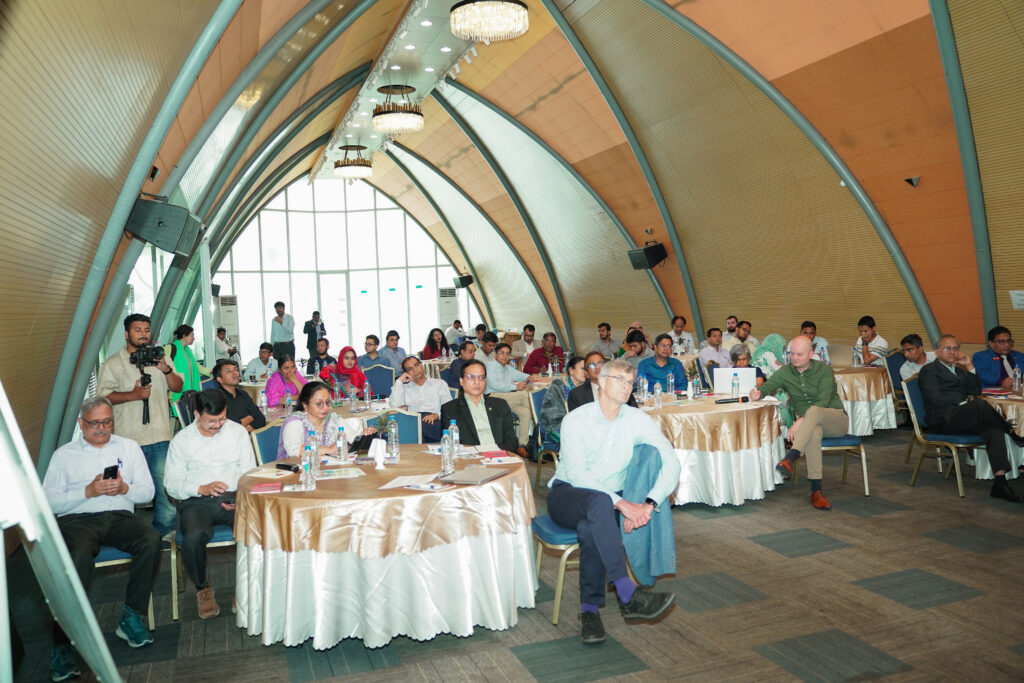
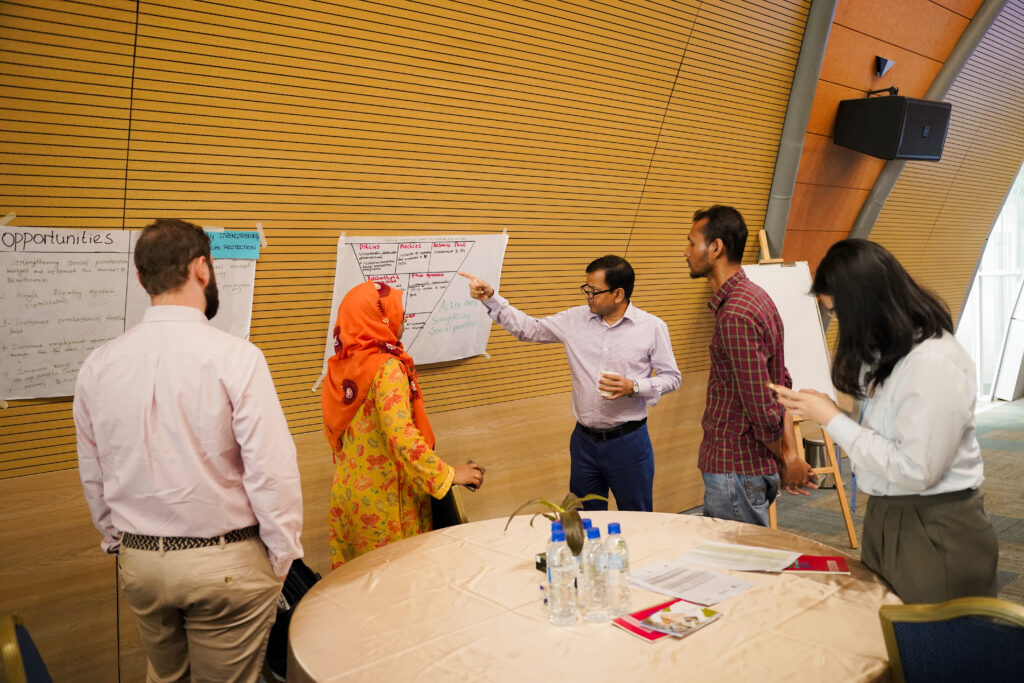
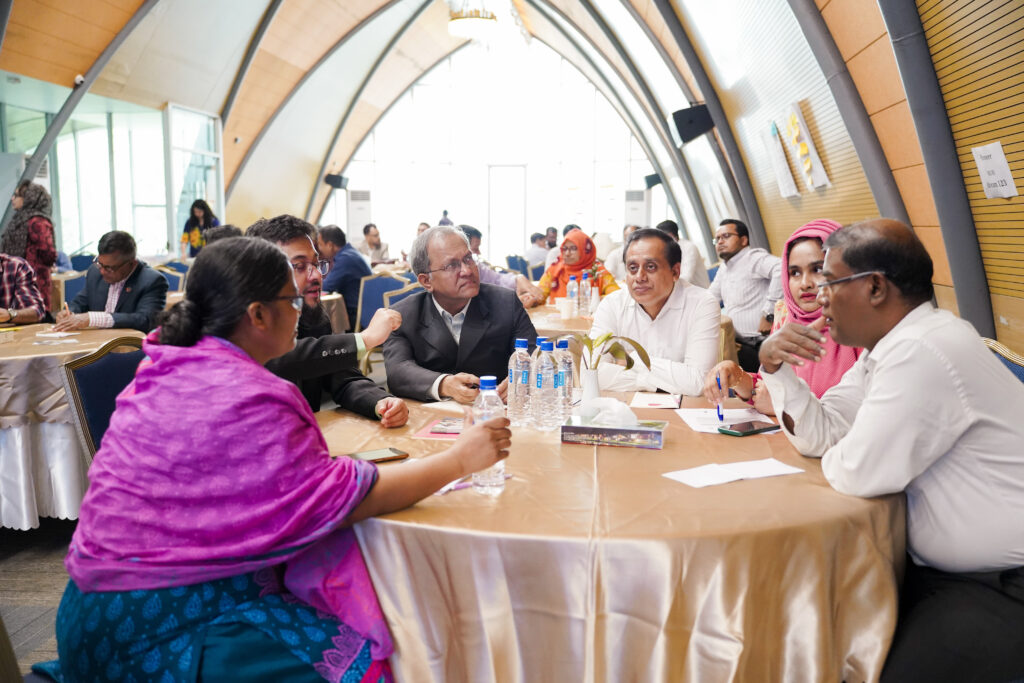
Capacity Building Across Sectors
The Foresight4Food FoSTr team conducted an in-depth training session for representatives from five key research institutions—Bangladesh Agricultural University (BAU), Sher-e-Bangla Agricultural University (SAU), CEGIS, Center for Environmental and Geographic Information Services (CEGIS), and Institute of Nutrition and Food Science (INFS). The training strengthened participants’ abilities to design and lead participatory foresight processes using tools like trend analysis, uncertainty mapping, and systems thinking.
Government Endorsement and Institutional Momentum
In a pivotal moment at the closing session of the workshop, Md. Masudul Hasan, Secretary of the Ministry of Food, announced plans to establish a dedicated foresight unit within the ministry. This unit will serve as a hub for anticipatory governance, helping policymakers navigate uncertainties and craft more resilient strategies. This initiative also gives a strong signal that foresight is no longer a theoretical exercise—it’s becoming embedded in the machinery of policymaking.
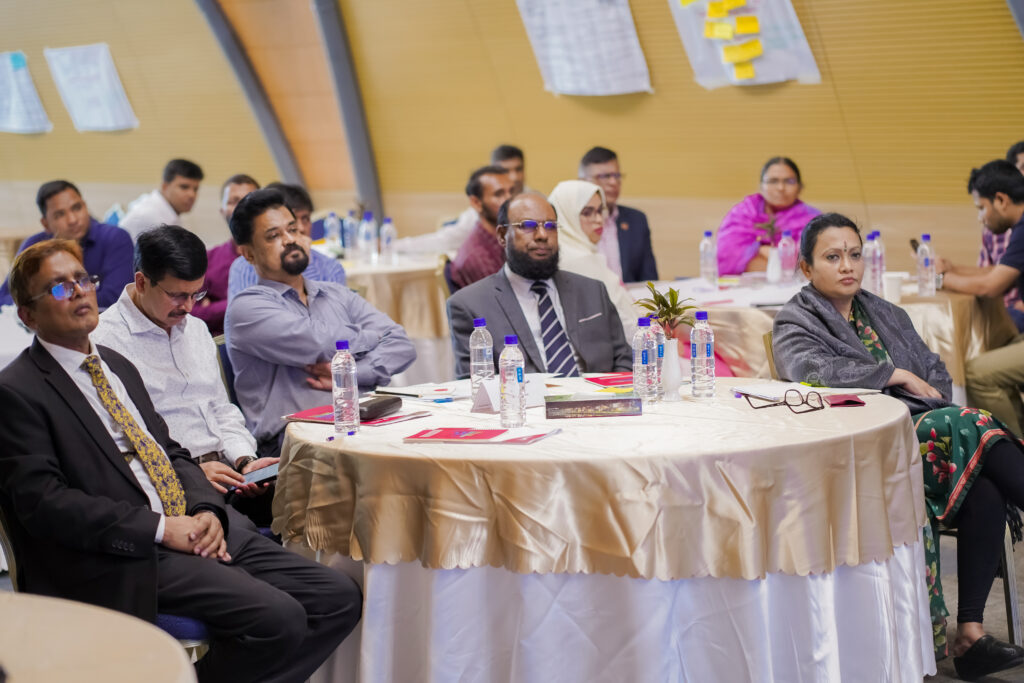
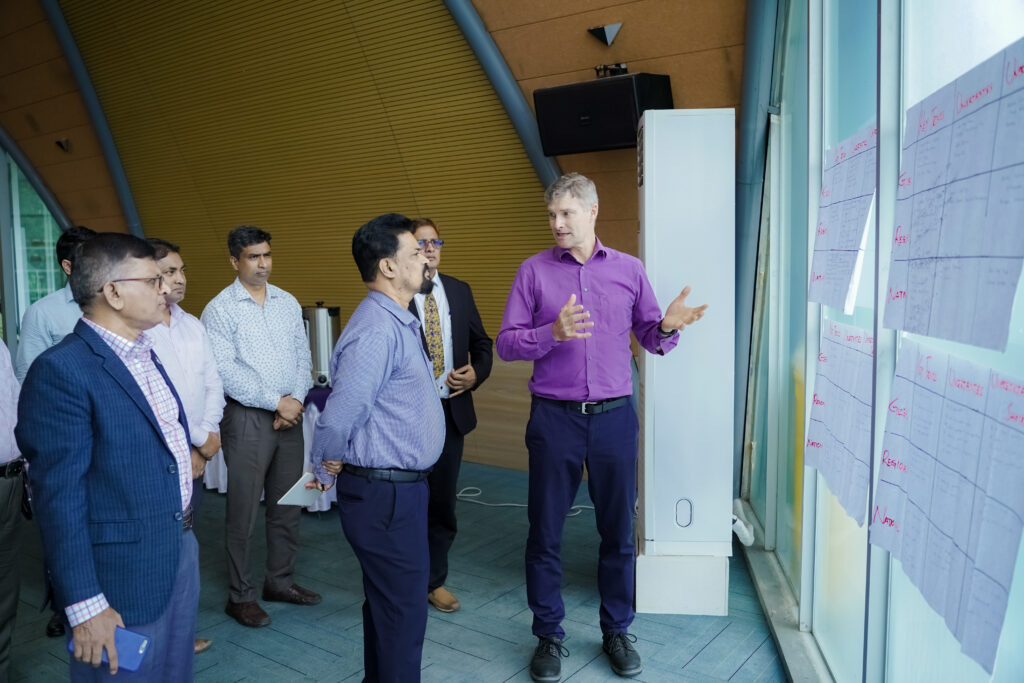
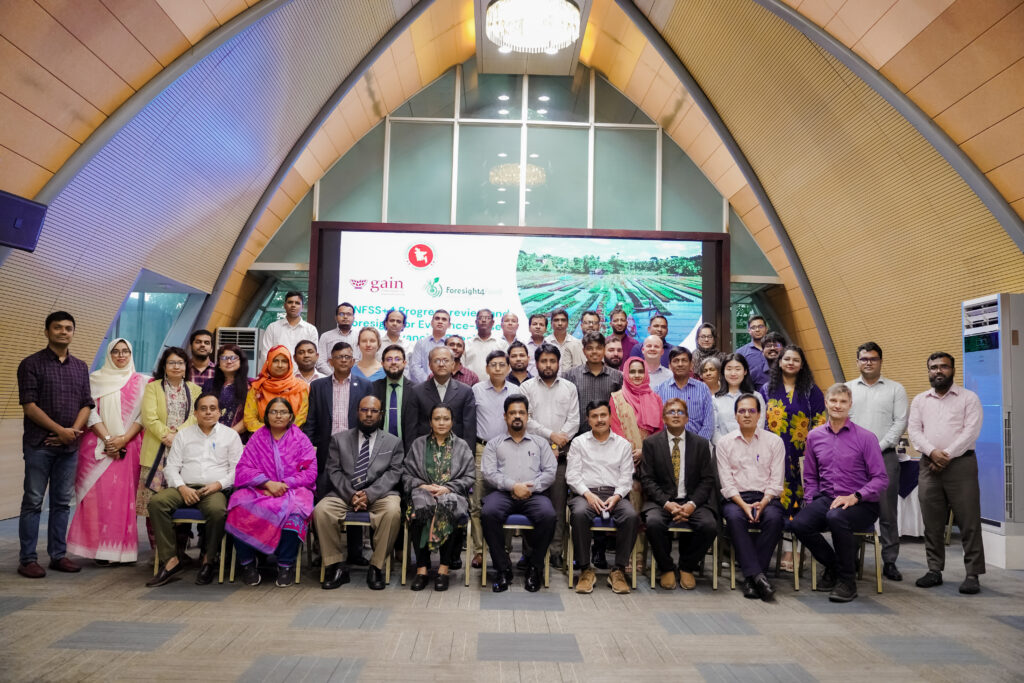
Path Ahead: From National Policy to Regional Leadership
The visit has opened several promising pathways for scaling foresight in Bangladesh and beyond:
- Establishment of a foresight unit within the Ministry of Food to inform strategic planning and decision-making.
- Creation of a South Asia foresight hub based in Bangladesh to foster regional collaboration and knowledge exchange.
- Integration of foresight methodologies into university curricula and civil service training programs, ensuring future generations of policymakers and researchers are equipped with forward-thinking tools.
Strategic Partnerships and Shared Vision
Throughout the week, the FoSTr team held key meetings with the Food Planning and Monitoring Unit (FPMU) and representatives of the Dutch Embassy, sharing outcomes of the national foresight process and exploring avenues for long-term collaboration.
As the global community gears up for the 2025 UNFSS+4 event, Bangladesh’s proactive steps signal a bold commitment to reshaping food systems for a complex, uncertain future, setting a precedent for how foresight can underpin transformation at scale, bridging science, policy, and practice